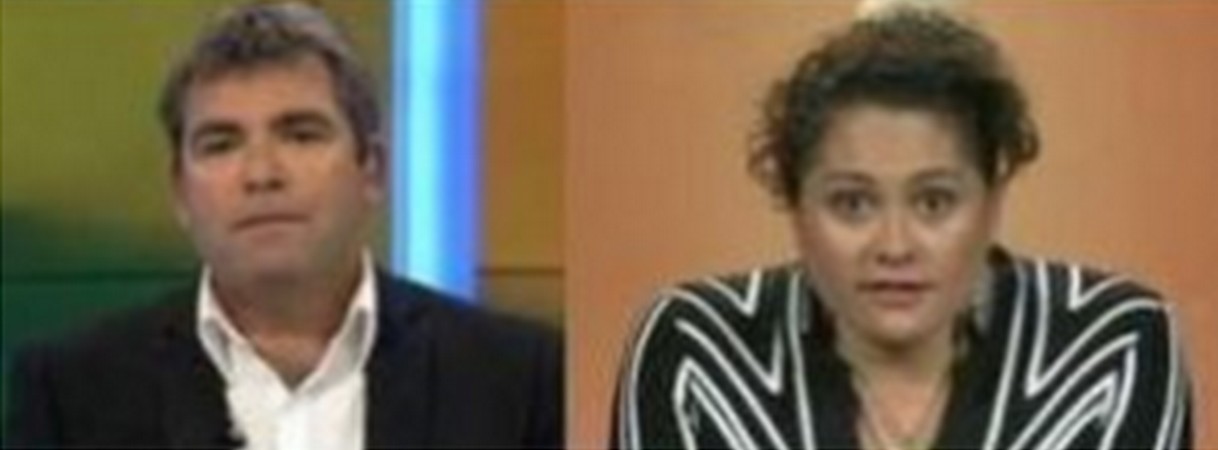McCoskrie: Euthanasia – we don’t need it
 Manukau Courier 30 November 2016
Manukau Courier 30 November 2016
Family First Comment: The Manukau Courier kindly gave us the opportunity to respond to Louisa Wall’s piece promoting assisted suicide.
OPINION: Opposing euthanasia does not mean that a person opposes compassion.
Patients facing death have a fundamental human right – a right to receive the very best palliative care, love and support that we can give to alleviate the ‘intolerable suffering’ that they fear. This is real death with dignity. Assisting suicide is not the answer.
Assisted suicide would place large numbers of vulnerable people at risk – in particular those who are depressed, elderly, sick, disabled, those experiencing chronic illness, limited access to good medical care, and those who feel themselves to be under emotional or financial pressure to request early death.
Patients, even those without a terminal illness, may come to feel euthanasia would be “the right thing to do”, they have “had a good innings”, and they do not want to be a “burden” to their nearest and dearest. It won’t be about the ‘right to die’ but the ‘duty to die’.
Those concerned about the rights of people with disabilities are right to be concerned. A disability rights group in NZ said “There are endless ways of telling disabled people time and time again that their life has no value.”
One of the countries to decriminalise euthanasia has been the Netherlands. Professor Theo Boer was a member of the Dutch Regional Euthanasia Commission for nine years, during which he was involved in reviewing 4,000 cases. He admitted to being a strong supporter of euthanasia and argued that there was no slippery slope. However, by 2014 he had a complete change of mind. He said “Whereas in the first years after 2002 hardly any patients with psychiatric illnesses or dementia appear in reports, these numbers are now sharply on the rise. Cases have been reported in which a large part of the suffering of those given euthanasia or assisted suicide consisted in being aged, lonely or bereaved. Some of these patients could have lived for years or decades.”
The majority of the medical profession and national medical associations around the world have been resolutely against the introduction of voluntary euthanasia or physician-assisted suicide.
Euthanasia would also send a conflicting message to young people and our communities about suicide and the value of life.
One of the main reasons that politicians in NZ have rejected previous attempts to decriminalise euthanasia is that they realised that the safeguards, while sounding good, would not guarantee the protection required for vulnerable people including the disabled, elderly, depressed or anxious, and those who feel themselves to be a burden or are under financial pressure.
The international evidence backs up these concerns, and explains why so few countries have made any changes to the law around this issue.
We simply need to ensure a palliative care regime in NZ that is fully funded and world class. That’s where the politicians’ focus should be.
– Bob McCoskrie is the National Director of Family First and a Manurewa resident. Go to manukaucourier.co.nz to read Manurewa MP Louisa Wall’s perspective on her Authorised Dying Bill.
http://www.stuff.co.nz/auckland/local-news/manukau-courier/87019781/mccoskrie-euthanasia–we-dont-need-it
Wall: Giving people a choice in their death
Manukau Courier 30 November 2016
OPINION: In June 2015 in the High Court at Wellington Justice Collins decided that Lecretia Seales’ doctor would be likely to be prosecuted under the Crimes Act if she helped her to die, and that New Zealand’s Bill of Rights Act does not provide for assisted dying.
Justice Collins stated in conclusion that –
“Although Ms Seales has not obtained the outcomes she sought, she has selflessly provided a forum to clarify important aspects of New Zealand law. The complex legal, philosophical, moral and clinical issues raised by Ms Seales’ proceedings can only be addressed by Parliament passing legislation to amend the effect of the Crimes Act.”
Therefore, on 18 November 2016 at the Health Select Committee hearing on the petition of Hon. Maryan Street and 8,974 others, Professor Mark Henaghan and I tabled an Authorised Dying Bill that we have been working on since the High Court decision.
The Authorised Dying Bill proposes a legal process for an application to be made to an independent ethics committee by a mentally competent adult who has been diagnosed with a terminal illness and is expected to die within 12 months. The ethics committee would be comprised of experts in diagnostic medicine, psychiatry, ethics, Maori tikanga, disability, elderly care and law. The applicant must have been fully informed of all options in respect of their terminal illness and the ethics committee is provided with their full medical records. It is then for the committee to determine whether to grant approval and to determine the appropriate procedure to carry out that approval. It is a process that allows a person facing death to have an option of choosing the manner and time of that death.
An ethical question this process seeks to address is can society do harm to a person with a terminal illness who is facing death by allowing them to choose when and how they die with the support of an authorised medical practitioner?
READ MORE: http://www.stuff.co.nz/auckland/local-news/manukau-courier/87019852/wall-giving-people-a-choice-in-their-death






